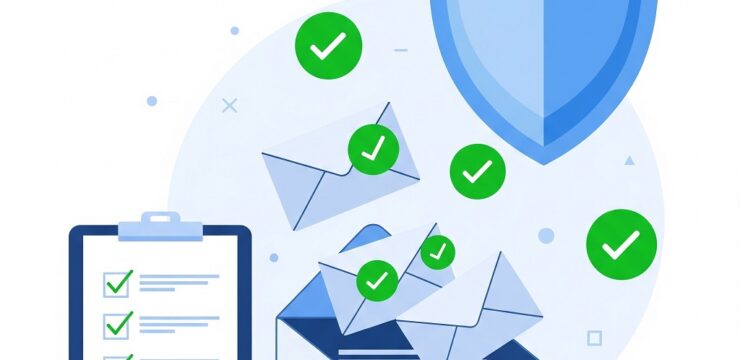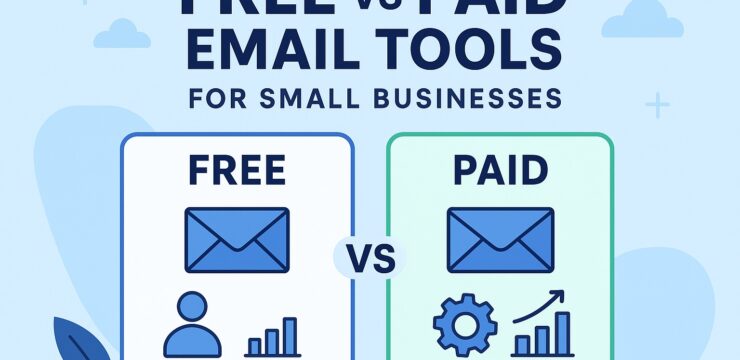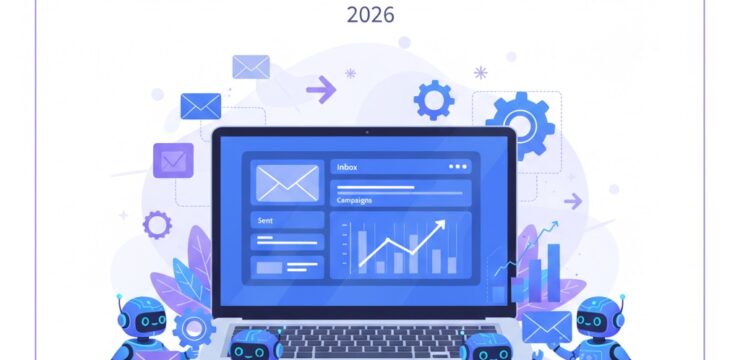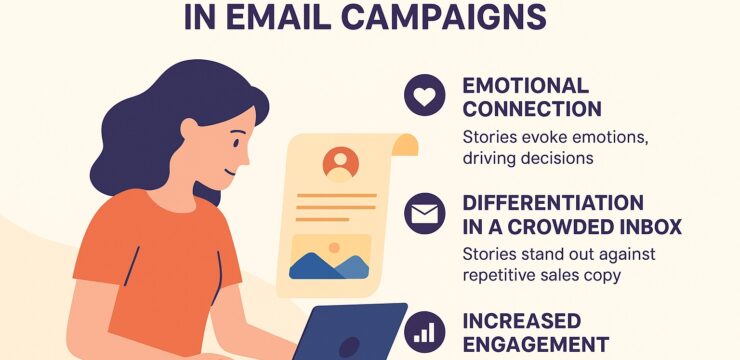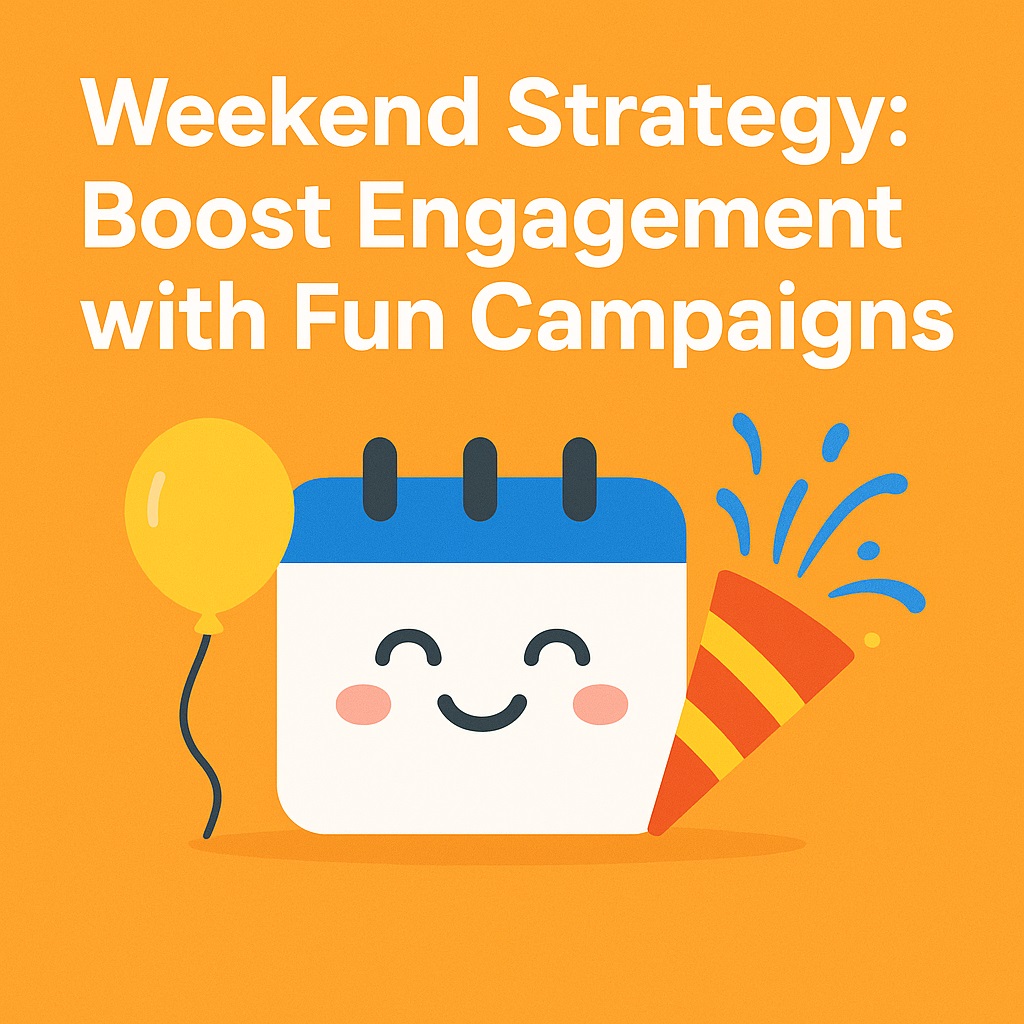
Weekends have always been a time of relaxation, leisure, and family bonding. For businesses, however, weekends present a golden opportunity to engage with audiences in a lighter, more casual manner. With more people spending time on social media and checking emails during their downtime, weekend engagement campaigns can bring excellent results. To maximize this opportunity, businesses must understand how to craft fun, interactive, and timely campaigns that capture attention and encourage participation.
Why Weekend Engagement Campaigns Matter
Weekend engagement campaigns are essential because consumers are generally more relaxed, responsive, and willing to interact with playful or creative content during weekends. Unlike weekdays, when people are focused on work and responsibilities, weekends allow them to explore products, enjoy entertainment, and participate in online activities. This is the prime moment for businesses to build trust and brand loyalty while boosting conversions.
Understanding Audience Behavior on Weekends
Behavior patterns shift dramatically during weekends. Most users spend more time browsing social media, streaming videos, and opening promotional emails. Statistics show that weekend email open rates increase significantly for certain industries such as retail, hospitality, and entertainment. This makes it the best time to run engagement-focused campaigns. Understanding this behavior enables marketers to time their campaigns effectively.
Types of Weekend Engagement Campaigns
Weekend engagement campaigns can take many forms depending on your business goals. Popular types include:
- Interactive Contests: Photo contests, quizzes, or polls encourage participation and sharing.
- Flash Sales: Limited-time weekend discounts create urgency.
- Giveaways: Simple entry mechanics, like commenting or tagging, increase reach.
- Themed Posts: Fun weekend-themed memes or lifestyle content resonate with audiences.
- Story-Based Engagement: Using Instagram/Facebook stories with interactive stickers (polls, sliders, questions).
Psychology Behind Weekend Marketing
The psychology of weekend engagement is rooted in emotional marketing. People associate weekends with fun, freedom, and socialization. Campaigns that evoke positive emotions such as joy, excitement, and curiosity perform better. Gamification, humor, and lighthearted visuals align with the relaxed mindset of weekend audiences, driving higher engagement rates.
Crafting the Perfect Weekend Engagement Campaign
When creating weekend engagement campaigns, businesses must focus on three things: timing, creativity, and simplicity. Campaigns should be launched on Friday evenings or Saturday mornings for maximum reach. Creativity ensures campaigns stand out, while simplicity makes it easy for users to participate. The more effortless the engagement, the better the results.
Case Studies: Successful Weekend Engagement Campaigns
Several brands have successfully leveraged weekend engagement campaigns:
- Coffee Shops: “Weekend Happy Hour” discounts shared on Instagram boosted in-store visits.
- E-commerce Stores: Flash sales that lasted only 48 hours saw a 40% increase in sales.
- Fitness Brands: Weekend challenges on TikTok inspired community participation and user-generated content.
Tools to Execute Weekend Campaigns
Running a successful weekend engagement campaign requires the right tools. Some essential ones include:
- Email Marketing Platforms: Schedule campaigns with tools like Mailchimp or ActiveCampaign.
- Social Media Schedulers: Platforms like Buffer or Hootsuite ensure posts go live at peak times.
- Design Tools: Canva or Adobe Express help create fun, visually appealing graphics.
- Analytics Platforms: Track engagement with Google Analytics or platform insights.
Tips to Maximize Weekend Engagement Campaigns
To maximize results, businesses should:
- Use bright, fun visuals that reflect weekend vibes.
- Include calls-to-action that encourage interaction, not just sales.
- Leverage hashtags like #WeekendVibes or #SundayFun to boost reach.
- Encourage user-generated content by asking customers to share experiences.
- Personalize campaigns with audience insights for relevance.
Challenges in Weekend Campaigns
Despite the advantages, weekend engagement campaigns also come with challenges. Competition is higher during weekends, as many brands are active. Audiences may also be distracted with personal plans, so campaigns must be compelling enough to stand out. Additionally, businesses need to balance fun with professionalism to maintain brand image.
Future of Weekend Engagement Campaigns
As marketing evolves, weekend campaigns will continue to grow in importance. With AI-driven personalization, businesses can deliver tailored weekend experiences to each user. Interactive technologies such as AR and VR will make campaigns more immersive. Brands that master the art of weekend engagement will enjoy stronger customer relationships and long-term growth.
Final Thoughts
Weekend engagement campaigns are more than just a marketing tactic—they are a strategy to connect with audiences at their most relaxed and open state of mind. By using creativity, timing, and emotional appeal, businesses can boost engagement, brand loyalty, and sales. Whether through contests, flash sales, or interactive posts, weekends are the best time to have fun with your audience while driving meaningful results.
